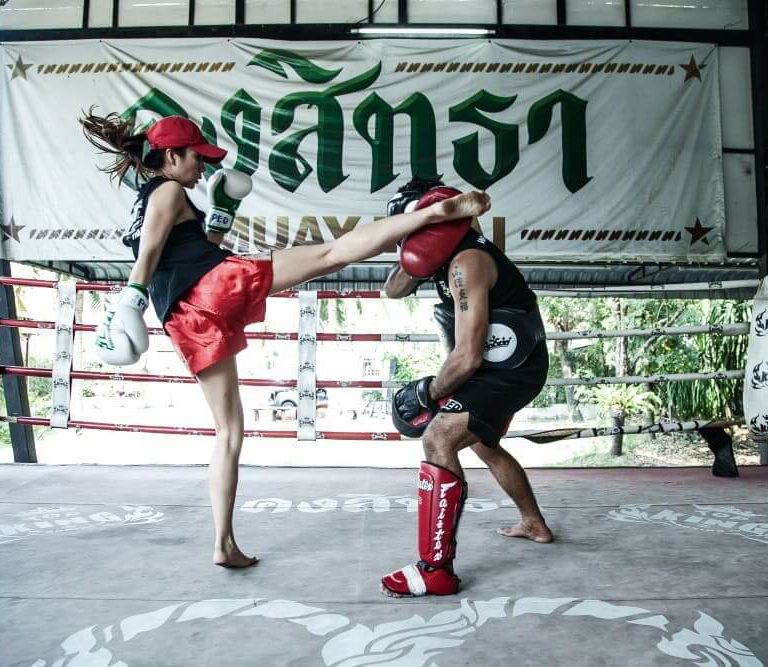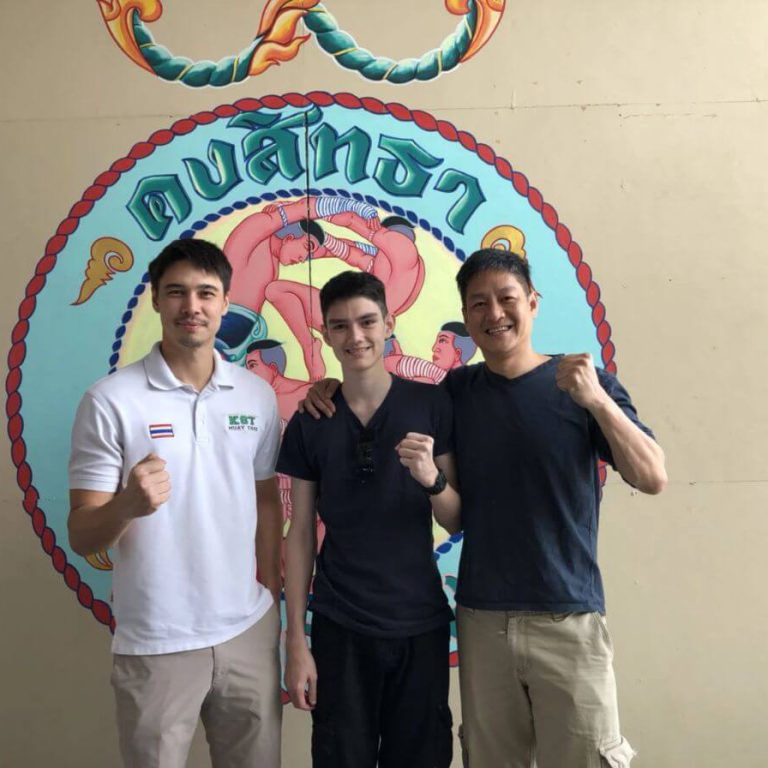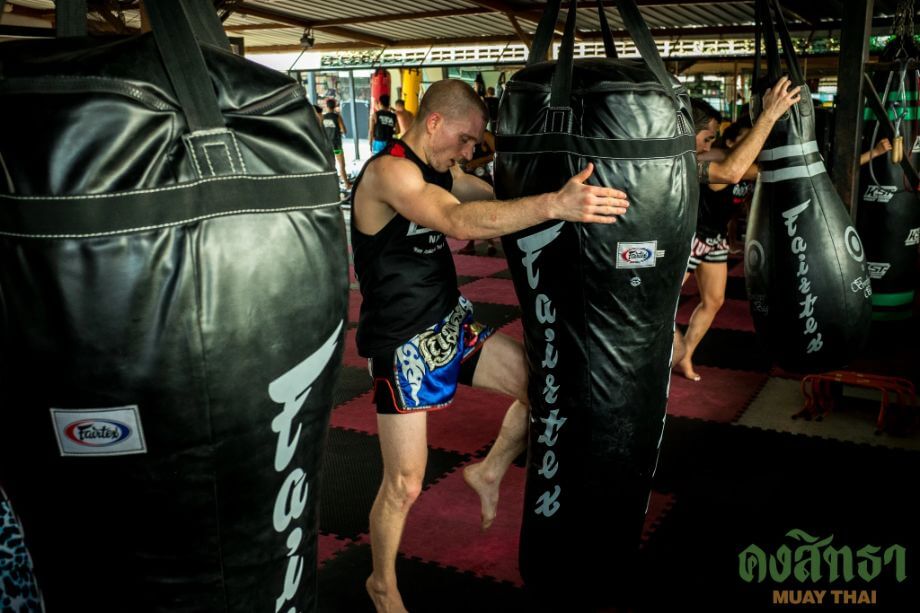
Keeping healthy while training Muay Thai can be incredibly difficult but rewarding as well. Diets that fighters have vary significantly depending on weight class, experience level, the country being trained in, and the options for food available.
I have quickly come to realize that if you don’t eat correctly and don’t consider having a healthy diet, your performance is going to suffer. If you can eat healthily, and consistently then you will reap the rewards from it, if you don’t, you won’t.
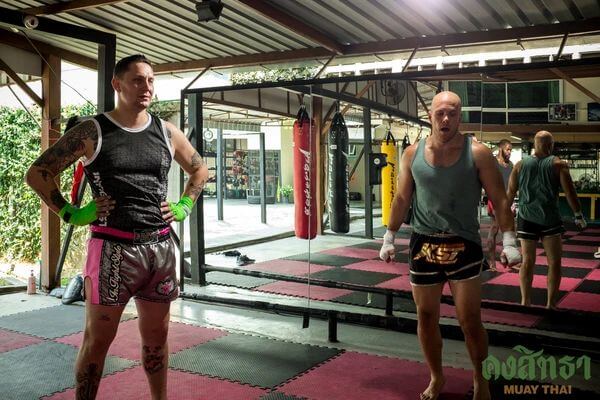
Why it’s Hard to Maintain a Diet
The aesthetic of a professional Muay Thai fighter is an incredible sight to behold. Muscles taut from hours upon hours of training. No evident sign of body fat being displayed. Striations on back muscles from endless rounds of clinching. One of the main reasons Muay Thai has grown so popular in recent years is because of its fitness benefits. Like any sport, following a proper diet is essential towards performing well and also getting that “Muay Thai body.” In virtually all of today’s societies, the options for unhealthy eating trump healthy options.
Many men and women have become persuaded by modern media and advertising to assume that unhealthy eating is a normal and acceptable aspect of society. According to a recent American food study, 57% of Americans in the 18-29 age demographic saying they eat fast food or other junk food at least weekly. 53% of men report eating fast food regularly while 42% of women admit to the same thing. During 2007–2010, adults consumed, on average, 11.3% of their total daily calories from fast food. Check out this infographic below that shows some alarming statistics on fast food in America.
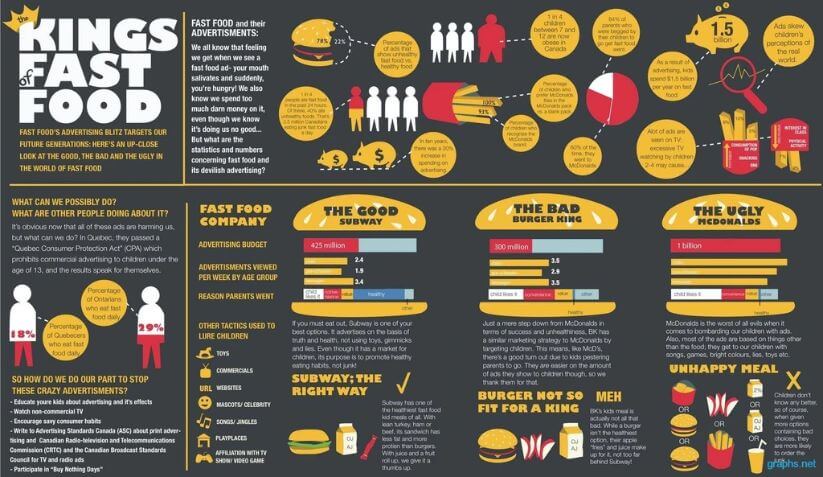
Despite the trend you’re currently seeing on social media of hundreds of fitness-first individuals posting gym selfies, workout routines, and healthy food they’re eating, the fact is the majority of us are living unhealthy lives. If this is an issue that piques your interest, check out First We Feast’s thirty food documentaries to get an idea of what’s happening with food culture globally. It turns out, we can chalk up all the unhealthy eating we’ve been doing to bad habits created throughout our lives.

Our Habits Are to Blame
Bad habits such as unhealthy eating are easy to form and hard to break. This is something most people are aware of. The main causes of bad habits are stress, boredom, and repetition. Particularly for eating, it’s the ease at which we’re able to find cheap sustenance.
Now look at the habits formed when taking Muay Thai seriously. You wake up on time. You’re able to repeat basic movements in order to perfect them. Stress and boredom are replaced with energy and dedication. It’s safe to say that picking up Muay Thai is a great way of replacing a bad habit with a new one.
Phillippa Lally is a health psychology researcher at University College London. In a study published in the European Journal of Social Psychology, Lally and her research team decided to figure out just how long it actually takes to form a habit. On average, it takes more than 2 months before a new behavior becomes automatic — 66 days to be exact. And how long it takes a new habit to form can vary widely depending on the behavior, the person, and the circumstances. In Lally’s study, it took anywhere from 18 days to 254 days for people to form a new habit. So if you’re thinking of kicking your unhealthy habits, be prepared to spend at least two months eating properly before you start to see results and your brain becomes rewired.
Nowadays, we have access to unhealthy food across the entire globe. Even in Thailand, with so many healthy options available, the food isn’t as nutritionally dense as you’d think. Training Muay Thai and eating what the Thai fighters eat still isn’t the healthiest option. See what I’m talking about here. You’ll find that Thai fighters are still consuming high calorie, sweetened drinks like iced tea and cola before, during, and after practice. Heavily fried foods have always been cheap and accessible, therefore Thai fighters see no reason to diverge from their eating habits. While their performance may not suffer tremendously, you’ll find that western fighters have an edge in this particular department because of research, easily accessible healthy foods, and a more nutrition-oriented approach towards training Muay Thai.
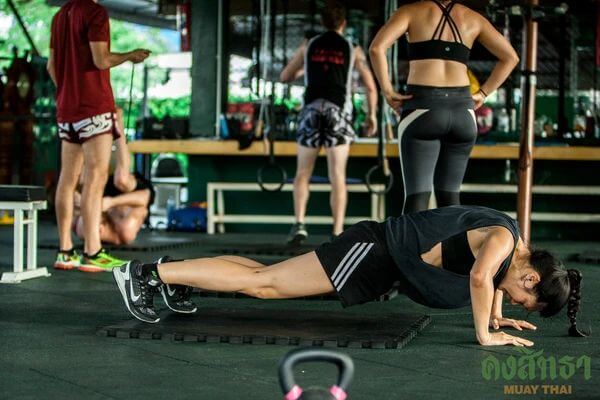
Doing it the Right Way in Thailand
One of the best aspects about training in Thailand for a few weeks or a few months is the ability to break bad habits and form new habits. Muay Thai is a lifestyle for many practitioners, even those who don’t participate in bouts. An example of someone who realizes how difficult it is to change bad habits and to eat properly is Richi Alvarez Huerta, Khongsittha Muay Thai’s strength and conditioning coach. Because many people come to Thailand to get stellar Muay Thai training but lack the knowledge of healthy food options in Thailand, he’s created a spreadsheet containing details on what to eat and what to avoid while in Thailand. You can download Richi’s guide here to get a clear idea of your options of healthy eating while training Muay Thai in Thailand, and the diet can be easily replicated when heading back home.
Remember, it can take up to six months to completely break a bad habit and form a new one. Using Muay Thai is a proven way to assist in erasing bad habits and seeing the rewards when forming new ones, and it all begins with a healthy diet.



